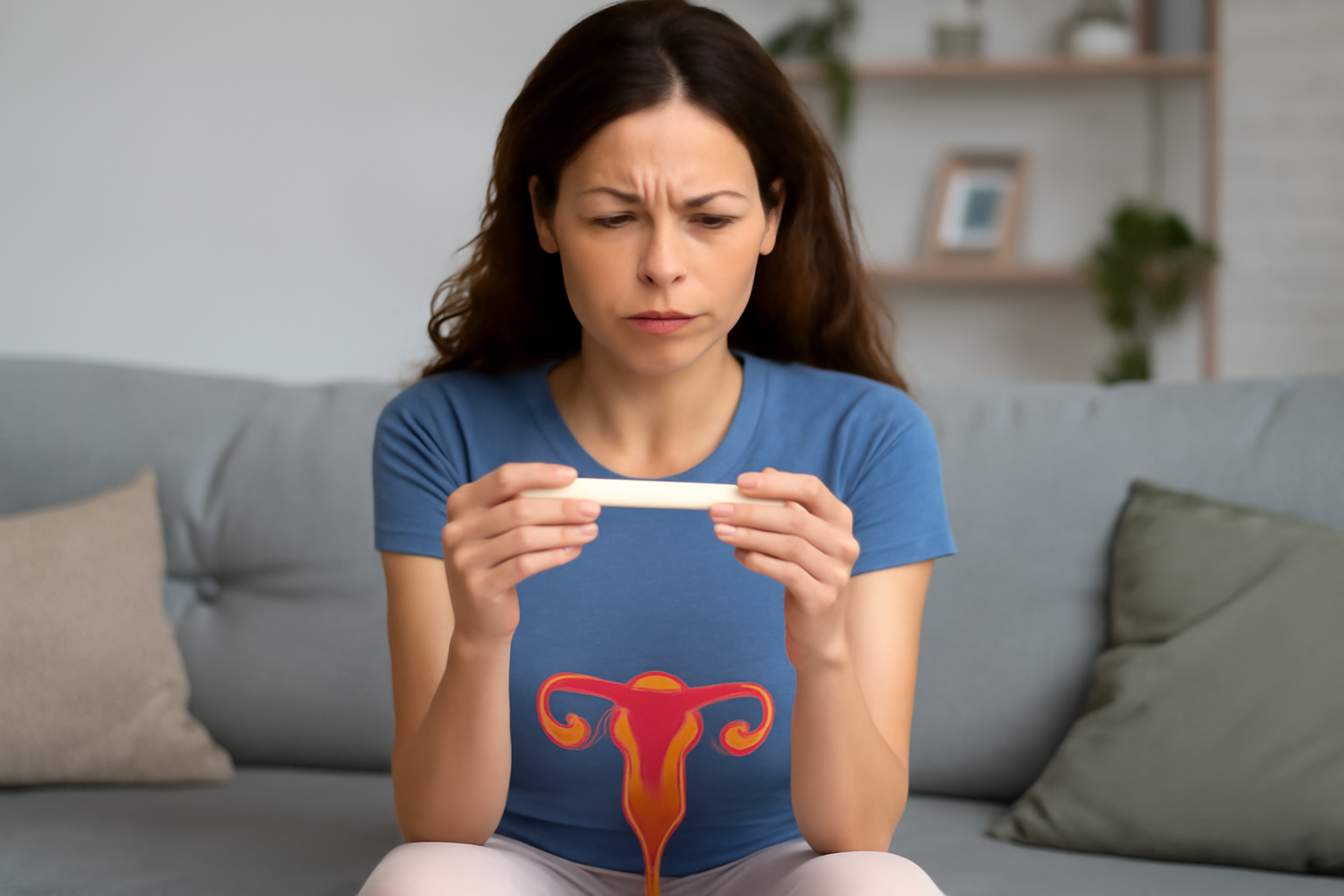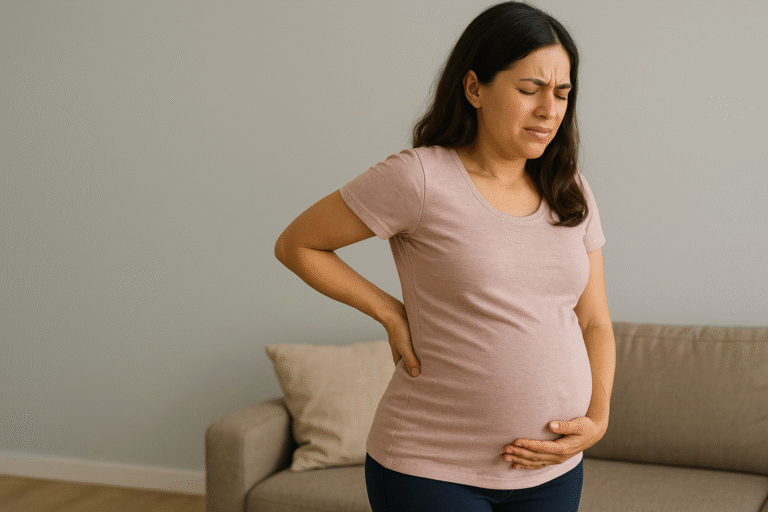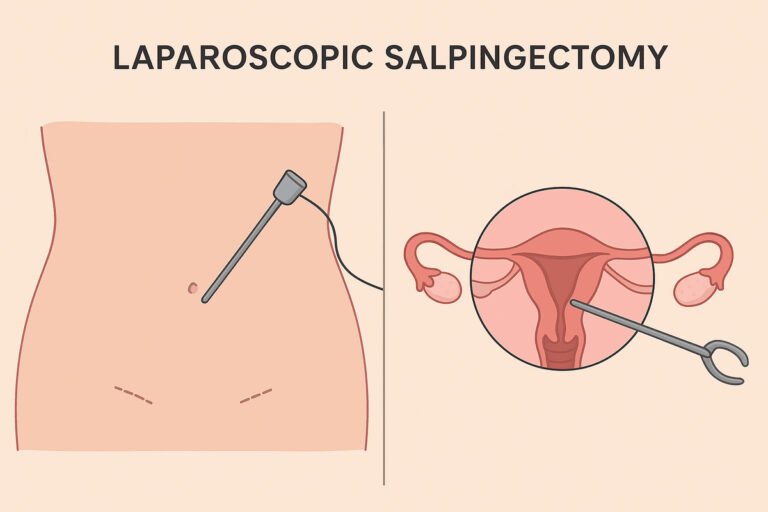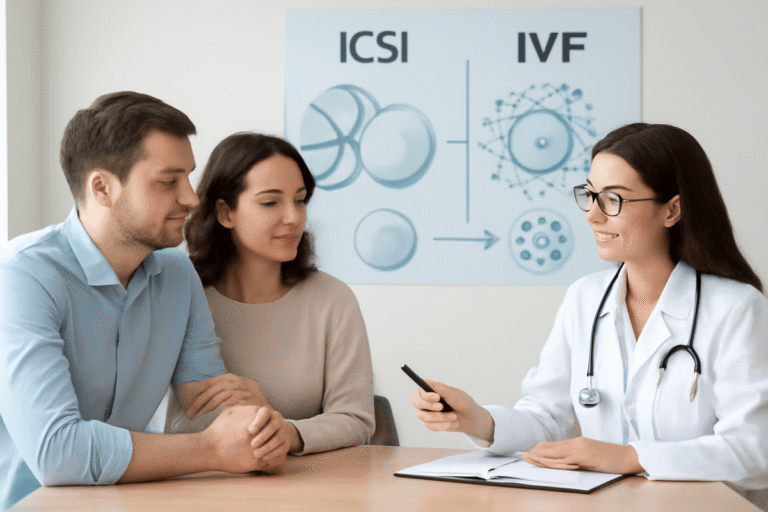Endometriosis is a condition that affects millions of women worldwide, with symptoms ranging from debilitating pain to fertility challenges. One of the most common questions asked by women diagnosed with endometriosis is: Can you have kids with endometriosis? This question stems from the fact that endometriosis is often associated with fertility problems, but the answer is not as straightforward as a simple yes or no. In this article, we will explore the relationship between endometriosis and pregnancy, answer this important question, and provide practical tips for women who are trying to conceive with endometriosis.
Also read: Does an Abnormal Pap Smear Detect HIV? | Find Out Here
What Is Endometriosis?
Before diving into the question of fertility, it’s important to understand what endometriosis is. Endometriosis occurs when tissue similar to the lining of the uterus, known as the endometrium, grows outside the uterus, often on the ovaries, fallopian tubes, or other pelvic organs. Each month, the endometrial-like tissue responds to hormonal changes just like the lining inside the uterus—thickening, breaking down, and bleeding. However, unlike the tissue inside the uterus, which can exit the body during menstruation, the tissue outside the uterus has nowhere to go. This can lead to inflammation, pain, and the formation of scar tissue, also known as adhesions.
How Does Endometriosis Affect Fertility?
Endometriosis can interfere with fertility in a variety of ways. The condition can cause physical blockages or distortions in the reproductive organs, which may prevent the sperm from meeting the egg. For example:
- Blocked fallopian tubes: Endometriosis can cause scarring or adhesions around the fallopian tubes, which can block the passage of eggs from the ovaries to the uterus, or prevent sperm from reaching the egg.
- Ovarian cysts (Endometriomas): Endometriomas are cysts formed when endometrial tissue grows on the ovaries. These cysts can damage ovarian tissue and interfere with ovulation, reducing a woman’s ability to release eggs.
- Inflammation: The chronic inflammation caused by endometriosis can affect egg quality and fertilization.
- Abnormalities in the uterine lining: Endometriosis can cause changes to the lining of the uterus, making it less receptive to a fertilized egg, which can affect implantation.
Despite these challenges, many women with endometriosis are still able to conceive naturally, and treatments are available for those who experience difficulty.
Can You Have Kids with Endometriosis?
The short answer is yes: it is possible to have children with endometriosis. However, the extent to which endometriosis affects fertility varies from woman to woman. Some women with endometriosis may experience no difficulty at all in getting pregnant, while others may need medical intervention.
The severity of endometriosis plays a significant role in fertility. In cases where the condition is mild, fertility may not be as significantly impacted. For women with more advanced endometriosis, the chances of conceiving may be reduced due to factors like scarring, adhesions, and blocked fallopian tubes.
It’s also important to note that endometriosis doesn’t only affect fertility; it can also affect the overall health of the reproductive system. In some cases, women with endometriosis may experience complications during pregnancy, such as an increased risk of miscarriage, preterm birth, or placental issues. However, with proper care and medical attention, most women with endometriosis can have a healthy pregnancy.
What Are Your Options for Conceiving with Endometriosis?
If you are struggling with endometriosis-related infertility, there are several options available to help you conceive. The most suitable approach will depend on factors such as the severity of your condition, your age, and your overall reproductive health.
1. Trying Naturally
Many women with mild to moderate endometriosis are still able to conceive naturally, especially if their fertility has not been significantly affected by the condition. If you’ve been trying to conceive for over a year (or six months if you’re over 35), and haven’t had any success, it may be time to consult with a fertility specialist. For women with endometriosis, early intervention can increase the chances of successful conception.
2. Fertility Medications
Fertility medications, such as Clomid or letrozole, are often used to stimulate ovulation in women with endometriosis. These medications can help regulate the menstrual cycle and increase the number of eggs available for fertilization. For women who have endometriosis-related ovulatory dysfunction or irregular cycles, fertility medications can be a helpful option.
3. Intrauterine Insemination (IUI)
Intrauterine insemination (IUI) is a fertility treatment that directly injects sperm into the uterus around the time of ovulation. Couples often combine IUI with fertility medications to increase the chances of conception.. This option may be particularly useful for women with mild to moderate endometriosis who have not had success with natural conception.
4. In Vitro Fertilization (IVF)
In vitro fertilization (IVF) is a more advanced fertility treatment that involves retrieving eggs from the ovaries, fertilizing them in a laboratory, and then transferring the fertilized embryos into the uterus. IVF is often recommended for women with severe endometriosis, especially when other treatments haven’t been successful. IVF allows doctors to bypass some of the complications associated with endometriosis, such as blocked fallopian tubes or poor egg quality.
5. Surgical Treatment
For women with endometriosis who are having difficulty conceiving, surgery may be considered to remove endometrial tissue, adhesions, and cysts. Laparoscopic surgery is the most common approach used to treat endometriosis, and it may help improve fertility by clearing blockages and reducing inflammation. Studies have shown that surgical treatment of endometriosis can improve pregnancy rates, particularly in women with mild to moderate endometriosis.
However, it’s important to note that while surgery can improve fertility, it is not always a guaranteed solution. In some cases, the endometriosis may return after surgery, and women may require additional treatment.
6. Egg Freezing
For women who have been diagnosed with endometriosis at a younger age and want to preserve their fertility, egg freezing may be an option. Egg freezing allows you to store your eggs for future use, which can be helpful if you need to delay pregnancy or if your fertility declines over time. Egg freezing can be particularly beneficial for women with endometriosis who may face a reduced ovarian reserve or quality of eggs as they get older.
The Emotional and Psychological Impact of Endometriosis
It’s also important to address the emotional and psychological aspects of living with endometriosis. Struggling with infertility can be incredibly stressful, and women with endometriosis often face emotional challenges as they try to conceive. The uncertainty of whether or not they will be able to have children can lead to feelings of frustration, sadness, and isolation.
It’s essential for women with endometriosis to seek support from healthcare providers, counselors, or support groups. Talking with others who understand what you’re going through can be incredibly helpful. Additionally, working with a fertility specialist can provide clear guidance and options, helping you feel more empowered throughout the process.
Lifestyle Changes to Improve Fertility with Endometriosis
In addition to medical treatments, certain lifestyle changes can help improve fertility in women with endometriosis. While no single change will guarantee pregnancy, adopting healthy habits can increase your chances of conceiving and improve your overall well-being.
1. Healthy Diet
A balanced diet rich in fruits, vegetables, whole grains, and healthy fats can support overall reproductive health. Omega-3 fatty acids, found in foods like salmon, flaxseeds, and walnuts, have anti-inflammatory properties that may help reduce the inflammation caused by endometriosis. Avoiding processed foods and excess sugar can also improve hormone balance and support fertility.
2. Exercise
Regular physical activity can improve fertility by promoting healthy hormone levels, improving circulation, and reducing stress. It’s important, however, to avoid excessive exercise, which can negatively impact fertility. Moderate exercise such as walking, swimming, or yoga is often beneficial for women with endometriosis.
3. Stress Management
Chronic stress can have negative effects on fertility, and women with endometriosis may be more vulnerable to stress due to the pain and emotional challenges of the condition. Finding effective ways to manage stress, such as through relaxation techniques, meditation, or therapy, can support both physical and emotional health.
Also read: Endometriosis Diet: 7 Foods That Ease Your Symptoms
Conclusion
To answer the question, “Can you have kids with endometriosis?”: Yes, it is possible, but it may take time and require medical intervention depending on the severity of the condition. Many women with endometriosis go on to have successful pregnancies, but it’s important to recognize that each individual’s experience with endometriosis is unique.
If you’re struggling to conceive, it’s important to speak with a fertility specialist who can guide you through the best options based on your specific condition. Whether you’re trying naturally or considering assisted reproductive technologies, there is hope. With the right treatment plan and support, many women with endometriosis can realize their dream of becoming mothers.




